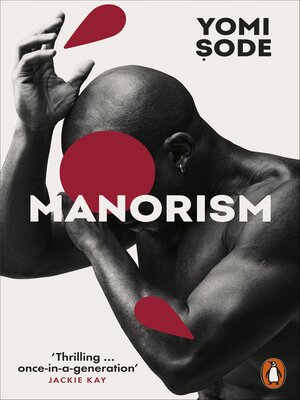
Sign up to save your library
With an OverDrive account, you can save your favorite libraries for at-a-glance information about availability. Find out more about OverDrive accounts.
Find this title in Libby, the library reading app by OverDrive.



Search for a digital library with this title
Title found at these libraries:
| Loading... |
SHORTLISTED FOR THE 2022 T. S. ELIOT PRIZE
SHORTLISTED FOR THE 2023 RATHBONES FOLIO PRIZE
A GUARDIAN AND FINANCIAL TIMES BOOK OF THE YEAR
'A wonder of a collection' Caleb Azumah Nelson
'Thrilling ... once-in-a-generation' Jackie Kay
'Genius ... tells a thousand stories in stunningly crafted verse' Nikita Gill
'Remarkable, textured ... Yomi Sode is a beautiful storyteller' Candice Carty-Williams
'Heartbreaking ... This debut is the living heart and soul of contemporary poetry' Pascale Petit
'Vivid, beautiful and deeply moving' Rt Hon Diane Abbott MP
'Yomi Sode writes with clarity, anger and love' Andrew Graham-Dixon
'Searing, shimmering, brilliant' Yrsa Daley-Ward
'A must for all lovers of poetry and its power' Roger Robinson
'Manorism is a classic' Caleb Femi
Impassioned, insightful, electric, Manorism is a poetic examination of the lives of Black British men and boys: propped up and hemmed in by contemporary masculinity, deepened by family, misrepresented in the media, and complicated by the riches, and the costs, of belonging and inheritance. It is also an exploration of the differences of impunity afforded to white and Black people, and to white and Black artists.
Caravaggio - originally, unexpectedly - looms large: as a man who moved between spheres of exalted patronage and petty criminality; as a painter who, amid the elegant conventions of late Mannerism, forged his own style of visceral dark and light; and as an individual whose recognized genius was allowed to legitimate and excuse his violence.
In this profound and moving debut, Yomi Sode asks: what does it mean to find oneself between worlds - to 'code-switch', adapting one's speech and manners to widely differing cultural contexts? Who is, and who isn't, allowed to be more than their origins? And what do we owe each other? What do we owe ourselves?






